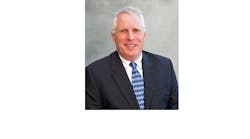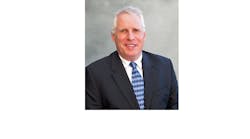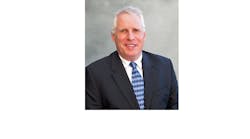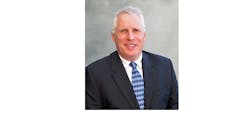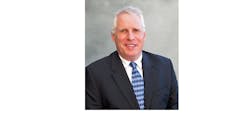- Is Bigger Really Better?
Some industry consolidators in the electrical wholesaling and electrical contracting markets — with grand plans to blanket North America with nationwide networks — received accolades from some industry analysts in the late 1990s.
On paper, consolidation made sense. The electrical wholesaling and electrical contracting industries were highly fragmented businesses with hundreds of smaller companies competing with a handful of national or large regional players. A bigger company, the argument went, could blitz the market by operating more efficiently than the smaller competitors. They would “just” have to centralize back-office operations, convert the acquired companies to the same computer system and then watch the operating efficiencies drop to the bottom line.
Alas, the plan had several flaws. In the electrical wholesaling industry, sales are won or lost by the people with the best customer relationships and by the companies that can back up the sale with the right product in the right place at the right time at the right price. That really did still matter. Customer relationships and service counts more than critical mass with electrical contractors, too, as now defunct consolidators such as Encompass and Bracknell Corp. discovered.
Complicating matters was the exodus of some key people who made these companies, often family-owned firms founded on decades-old customer relationships, so attractive in the first place. When the electrical construction market went into a free-fall with the rest of the U.S. economy, the new acquisitions had trouble generating the income to pay off exorbitant price tags. At the height of the economic expansion, the consolidators often overpaid for acquisitions at obscene multiples over earnings. That would turn out to be a little problem.
And, don't forget the IT issue. In the best of times, it's a costly and time-consuming challenge. During a recession, with corporate fathers drumming their fingers and waiting for a payback on their investment, it's a nightmare.
Where do the consolidators stand today? Uncertain futures face the corporate parents of two of the better-known acquirers in the electrical wholesaling industry, Rexel Inc., Dallas; and Hagemeyer USA, Atlanta.
Hagemeyer owns Cameron and Barkley, Charleston, S.C., and Tristate Electrical and Electronics Inc., Hagerstown, Md., two blue-chip regional players in the industrial and construction markets; as well as Vallen Safety Supply Co., Houston, a large safety products distributor. But Hagemeyer's parent company in Naarden, Netherlands, is spending much of its energy these days renegotiating terms on its loans. According to reports in the European business press, it's not a pretty financial picture.
Rexel Inc., Dallas, is owned by the largest electrical distributor in the world, Rexel SA, an international giant with 1,700 sales outlets in 29 countries, 22,000 employees and 2002 sales of approximately $9 billion. Since the 1980s, the company has acquired a roster of well-regarded family owned distributorships. However, it's debatable how much longer Rexel's corporate parent, Pinault-Printemps-Redoute (PPR) wants to dabble in electrical distribution.
PPR is an international conglomerate with over $28 billion in 2002 sales, but the company is now more interested in Gucci handbags and several other luxury retail brands than electrical supplies. According to PPR's October letter to shareholders, the company is focusing on building its luxury goods business, and has begun to spin off unrelated businesses, including its financial services units and several entities in its business-to-business division. In fact, Rexel is the only property remaining in that group. Add in a published report by AFX European Focus that PPR would like to exit the electrical business by the end of 2004, and it makes you wonder about the future ownership of Rexel's North American business operations.
- Texas Tango
In many ways, Texas offers all that's good, bad and ugly about the electrical construction business. With more than $6 billion in 2003 sales, Texas-based electrical distributors sell more electrical products than any state except for California, making it an important market to the electrical industry as a whole.
The Texas market has always reflected the power of well-run, family-operated businesses. For years, family-run distributors such as Dallas' Watson Electric, Houston's Warren Electric, Elliott Electric Supply of Nacogdoches, Wholesale Electric Supply of Houston, and Waco's Dealers Electric Supply dominated most regions of the state. Times have changed. Watson became part of Warren Electric in 1997, and Warren Electric was sold to several electrical distributors during 2002 and 2003.
For the busy Texas market, Houston, Austin and Dallas regularly appear on lists of the fastest-growing metropolitan areas not only in the Sunbelt but also the entire United States.
Texas distributors have had front-row seats when it come to two important customer trends — the attempted consolidation of the electrical contracting business and the globalization of a large part of the petrochemical industry. In recent years, there's been very little construction of new petrochemical facilities in Texas. Many of the new refineries are now being built in the Caribbean and Asia, and the state's large design-build construction firms, some of the biggest in the United States, spend more time looking outside the state for work.
Consolidation of the electrical contracting business hit hard in Houston, which was home to headquarters for three of the larger consolidators — Integrated Electrical Services (IES), Encompass and Quanta Services Inc. IES and Quanta are still battling it out in the tough electrical contracting market, but Encompass, which was the second-largest electrical contractor in 2001 with $1.6 billion in revenues, went Chapter 11 in October 2002. A few months later, it sold 37 of its more than 300 operating units.
Today, industry observers are most interested in seeing how the demise of Houston's Warren Electric plays out. Three distributors acquired parts of Warren Electric.
Late last year, Summit Electric Supply, Albuquerque, N.M., the 31st largest electrical distributor with $140.3 million in 2002 sales, acquired 12 of Warren Electric's domestic locations and one location in South America. Summit Electric is using the acquisition to extend its presence throughout Texas and parts of the Gulf Coast.
Dallas' Reynolds Co. now has the Allen-Bradley/Rockwell Automation area of primary responsibility (APR) for the eight locations it bought from Warren Electric in July 2002.
Sonepar acquired Warren del Caribe, San Juan, Puerto Rico.
- The China Syndrome
The idea of manufacturers moving their factories to regions offering cheaper labor isn't new. Years ago, U.S. auto manufacturers began moving some auto plants from Detroit and other auto manufacturing strongholds across the Midwest to the South to utilize nonunionized labor. During the late-1980s and early 1990s, people complained about U.S. manufacturers setting up Maquiladora plants in Mexico.
Today, the concern is about jobs and factories moving to China and other low-cost manufacturing locales in Asia. Companies have been doing this for some time, but it seems like 2003 was the year when it entered the public consciousness in the electrical industry. Malcolm O'Hagan, president, National Electrical Manufacturers Association (NEMA) Rosslyn, Va., said China, “is the single biggest factor influencing NEMA members' business these days.”
Indeed, two-thirds of the respondents to a NEMA survey on China said they are already sourcing from China, and half of the rest said they soon plan to be. NEMA is now working on plans to open a China office.
The issue of moving jobs to China was on the agenda at the Keystone Conference co-sponsored by the National Electrical Manufacturers Representatives Association, (NEMRA), Tarrytown, N.Y., and several other rep associations. The Chicago-based Electronics Reps Association has set up trade missions to China for its members interested in starting up business ventures in China, and the Manufacturers Agents National Association (MANA), Laguna Hills, Calif., also recently led a contingent of its members to China on a similar mission.
Offshoring won't go away. If anything it will gather steam. Electrical companies must learn to deal with it. Although China is the country of choice for many manufacturers today, Vietnam and other countries that can offer even cheaper manufacturing costs will be the destinations of the future.
Along with manufacturing jobs lost overseas, expect to see more IT-oriented jobs move offshore, a trend already common in the telecommunications field. IBM, Sprint, Microsoft and Hewlett Packard already have sizeable software design operations in India.
- The Mice that Roared
With so much industry chatter focusing on the bigger electrical distributors, it's sometimes easy to forget about the hundreds of smaller distributors that collectively control nearly half the sales of electrical products.
The potential collective clout of this “silent majority” took center stage in May 2003 with the merger of two buying/marketing groups that serve smaller distributors, Equity Electrical Associates, East Walpole, Mass., and EDN, Concord, Ohio. EDN and Equity operate as separate divisions of the new combined entity, with their own names, personnel, boards of directors, earnings schedules and payment procedures. Together they serve about 1,000 electrical distributors with 1,150 locations.
When the deal was announced, 80 percent of the sales volume of the two groups was derived from common vendors. Along with several hundred members, EDN brings it focus on doing business via EDI; Equity brings veteran management talent and a lively stable of electrical distributors dedicated to the benefits of their group.
The Top 200 electrical distributors control approximately 47 percent of Electrical Wholesaling's estimate of $72 billion in industry sales. It's a pretty hefty market share for relatively few companies when one considers approximately 3,500 to 4,000 distributors of electrical supplies account for the other 53 percent of electrical sales. That's why the big guys command the lion's share of attention from vendors.
But if the Equity/EDN merger can get 1,000 of the industry's distributors in one room, even the most jaded manufacturers will have to stop by for a visit. Now that's clout.
- The State of E-Business
While no one is satisfied with the slow adoption of proven e-business tools, overall there's been progress in 2003. The Industry Data Exchange Association (IDEA), Rosslyn, Va., developed a new tool to help electrical distributors and manufacturers clean up their data — the Data Audit and Certification (DAC) program. (See related article on page 14.)
Founded by NEMA and NAED, IDEA estimates data errors cost the electrical industry $1.2 billion annually, and that if electrical businesses synchronized their data properly through the IDW, it could add 1 percent and 0.75 percent to the bottom lines of manufacturers and distributors, respectively.
Still, the industry has a long way to go with e-business. Nowhere was that more evident than at a seminar on e-business at the recent NAED Region 3 meeting in Phoenix. NAED assembled an all-star panel of manufacturers, distributors and software vendors who worked with various tools of e-business every day. Unfortunately, the low distributor attendance at the session showed that relatively few conference attendees were interested in the topic, despite what the panel of experts had to offer. The attendees who did attend the session asked panelists about getting started with EDI or vendor-managed inventory, two e-business tools that have been available for well over a decade.
As the industry pulls out from the beneath the weight of the recession in 2004 and companies start investing in their operations again, hopefully some of those investments will be in new computer systems, IDEA membership and other tools that can improve their profitability.
- What's in a Name?
It was a brief press release battling for the light of day against dozens of other releases from electrical companies. It simply stated that Eaton Corp., Cleveland, has renamed its Industrial and Commercial Controls business “Eaton Electrical,” and that the Eaton organizational unit, formerly known as the Cutler-Hammer Group, also will be named Eaton Electrical.
While Randy Carson, Eaton senior vice president and group executive for Eaton Electrical, said in that announcement that Cutler-Hammer and several other smaller brands “will be able to grow under the Eaton Electrical group umbrella,” and that the company was aware of the strong awareness of these brands and would continue using them in products, marketing and sales efforts.”
The announcement marked the end of an era for one of the better-known brand names in the electrical market. A ton of brand equity had built up in the Cutler-Hammer name since it was founded in 1911, and the name will live on at distributor counters and in brand preference studies over the years.
Angelo Brothers knows the value of a good brand name. With lamp sales up over 22 percent since it first inked a three-year licensing agreement to use the Westinghouse name, Westinghouse Lighting Corp., formerly Angelo Brothers Co., has found that a well-known but once-dormant brand name with ties to the earliest days of the electrical industry still carries considerable clout.
The 57-year-old Angelo Brothers, Philadelphia, officially changed its name to Westinghouse Lighting Corp. in January and now markets over 5,000 lamps, ceiling fans, lighting fixtures and decorative lighting hardware under that name. The corporate name change supports its exclusive, multi-year licensing agreements for use of the Westinghouse brand on lighting products.
The first agreement, reached in 1997 with Westinghouse Electric Corp., Pittsburgh, (now a wholly-owned subsidiary of Viacom Inc.), allowed the company to use the Westinghouse brand on light bulbs. The company subsequently entered into agreements that expanded the license arrangement to include ceiling fans, light fixtures and decorative lighting hardware.
Angelo Brothers initially marketed its products under its ABCO trade name and the Westinghouse name. But after seeing lamp sales grow over 20 percent with the new Westinghouse name, and then seeing sales of ceiling fans grow even faster with the new moniker, Angelo Brothers decided to approach Westinghouse Electric Corp., about changing its name to Westinghouse Lighting Corp.
Westinghouse has also licensed its name and famous “Circle W” logo to Salton, Lake Forest, Ill., a manufacturer of small kitchen appliances and vacuum cleaners; and Linear, Carlsbad, Calif., a maker of garage door openers and intercom systems; and several other manufacturers.
Westinghouse had been one of the three largest manufacturers of lamps until 1983, when its sold its lamp operations to North American Philips, now Philips Lighting Co., Somerset, N.J.
Angelo said much of the company's sales increase is coming in the retail market because that's its historical focus. However, the company plans to take advantage of the strength of the Westinghouse brand in the commercial/industrial lighting arena, too.
- The Quest for Hassle-Free Special Pricing Authorizations (SPAs)
Savvy electrical distributors always look for ways to cut waste from their operating processes. That's why there's been so much talk this past year about the need to streamline the SPA process. (See related article on page 14).
According to an article by Neil Gillespie, principal, Channel Marketing Group, Pittsburgh, on NAED's Technology Informer site at www.naed.org, manufacturers use SPAs to offer distributors authorization to sell to a group of customers or a specific customer at a lower price than normal distributor cost. When a distributor buys items for stock at normal distributor cost and sells some of these to accounts with SPAs, they need to claim rebates, a form of SPAs, from the manufacturer for the items invoiced to the customer.
The good news is that distributors and manufacturers want to work through NAED to develop a standardize format for SPAs. Mike Rioux, IDEA's president says by using existing EDI transaction sets, distributors and manufacturers can already standardize the process. IDEA hopes to have completed review and approval of a new request for credit “flat-file” standard by early 2004, which should help alleviate the use of priority formats.
- Once, Twice… Sold On Ebay?
Ebay's move this year into the MRO/industrial supplies arena provides distributors with a relatively inexpensive option for setting up an online storefront. In 2003, the San Jose, Calif.-based online giant added 110 new subcategories to its MRO/Industrial Supply category at www.ebaybusiness.com, including categories for electrical distribution equipment, industrial automation and control, electrical tools and supplies, motors and lighting products.
Sellers can create online Ebay stores and have items listed under specific product headings for as little as $9.95 per month. For $499.95 per month, sellers can have an “anchor store,” with premium placement opportunities. The company estimates that last year business buyers shopping at www.ebaybusiness.com purchased over $1 billion in products in its MRO/Industrial Supply categories.
Sellers sometimes use Ebay as their only online sales effort because they don't have the expertise in-house to handle online payment, Web site development and upkeep and other necessities that come with being an independent online merchant. Other companies use the new online marketplace as another channel in addition to their own Web sites, or promote the items they area selling on Ebay on their own Web sites.
Relatively few mainstream electrical distributors now sell their wares on www.ebaybusiness.com. In fact, Becker Electric Supply, Dayton, Ohio, and several electrical surplus distributors were the only recognizable companies marketing their products through Ebay stores at press time. It's still an interesting concept that other distributors may utilize as they explore options for online sales.
- Industry Execs Move to New Posts
Some well-known industry veterans moved to senior executive positions at a number of companies. Following are some of the most intriguing leadership moves in 2003.
Ed Staple was named president at GB/Gardner Bender, Milwaukee, Wis. Sue Smith is now vice president of marketing for Pass and Seymour, Syracuse, N.Y. Ned Camuti was promoted to vice president of wire terminations, Ideal Industries, Sycamore, Ill. Joel Bateman took on more global responsibilities as chairman, global supply solutions committee, Hagemeyer NV. Joe Huffman left Leviton to become vice president of supplier relations, Consolidated Electrical Distributors (CED), Westlake Village, Calif. Jack Justillian retired from the COO post at Maurice Electrical Supply, Washington, D.C. Kirk Hachigian replaced Ralph Jackson as COO of Cooper Industries, Houston. Bob Sullivan retired as vice president of sales and marketing for the Electrical division of Southwire Co., Carrollton, Ga. Jeff Schaper was named president of GE Supply, Shelton, Conn., when Bill Meddaugh retired after 37 years with GE. Mike Gambino president and CEO, Pass and Seymour, Syracuse, N.Y., took on the additional role of president at Wiremold, West Hartford, Conn. Also at Wiremold, John Hoffman is the new vice president of sales; Tom Hudak joined the company as vice president of marketing; and Wes Kelley became director of specification strategy. Bary Boyer succeeded Jim Schmitt as president and CEO of Van Meter Industrial, Cedar Rapids, Iowa. Tom Cloud, now serving as chairman of NAED, became chairman and CEO of United Electric Supply, Co., New Castle, Del., and Gene Bruni became United Electric's president. Richard Kurtz succeeded Tony Wang as president of W.A.C. Lighting, Garden City, N.Y. Industry veteran John Peterson became vice president of sales for the Gulf Coast region of EGS Electrical Group. Lighting veteran Phil Alexander joined American Fluorescent, Waukegan, Ill., as director of light commercial sales. At Drake USA, Franklin, Mass., Andy Hemingway moved from AIW to a post as corporate vice president of sales and marketing for the datacom, utility, transit, irrigation, telecommunications and industrial/automation markets. Dominic Pileggi will succeed Kevin Dunnigan as CEO at Thomas and Betts Corp. In another move at T&B, former A-D executive Chris Hartmann was hired to lead the company's electrical products business. Curt Andersson became president of Cooper Industries' Crouse Hinds division, succeeding Steven Sisney, now heading Cooper's tool unit as group president.
- The Economy May Finally Turn in 2004
Although the industry continues to suffer through one of the worst downturns in recent memory, of particular concern are high vacancy rates in the office market and low capacity of utilization in industrial facilities. These are of particular concern to electrical manufacturers, electrical distributors and independent manufacturers' reps because so much of their business depends on office construction and retrofits, new factory construction and supplying the MRO needs of existing facilities.
However, many electrical industry executives see slow growth for next year. Many reps, distributors and manufacturers surveyed for the EW 2004 ElectroForecast, to be published in next month's issue, see single-digit growth in 2004 for their companies.
Other encouraging news exists. As you can see in Economic Factbook article on page 28, some other segments of the construction market are showing signs of awakening. Let's hope these forecasts prove to be true.
PASSING ON
We pay our respects to the industry leaders who passed away during the last 12 months.
Steven Edward Mattos, Healy and Mattos Inc., Hayward, Calif.; Mike Yaffee, co-founder, Glens Falls Electric Supply Corp., Queensbury, N.Y.; Austin Watson, co-founder, Watson Electric Supply, Dallas; Daryl Wayne Harman Jr., co-founder, Richmond Electric Supply Co., Richmond, Va.; Arthur W. Delande, president and CEO, Delande Supply Co. Inc., Peabody, Mass.; Jack Dwyer, vice president of sales, Appleton Electric, Chicago; Stuart C. Irby Jr., chairman and president, Irby Construction and Stuart C. Irby Co.; and Allen Rudolph, founder Rudolph and Co., Boston.



